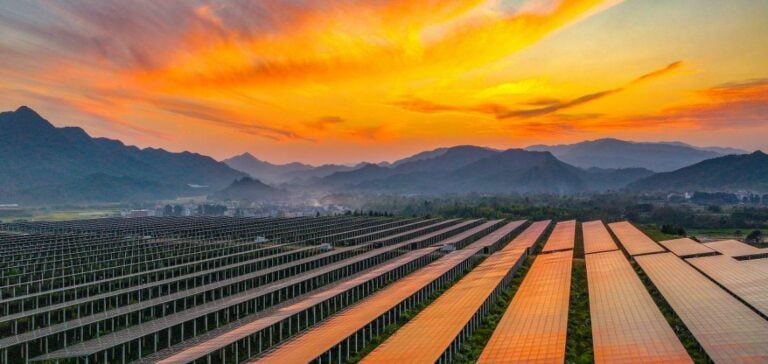China, the world’s largest emitter of greenhouse gases, has strengthened its position as the global leader in renewable energy by breaking new records in 2024. According to data released by the National Energy Administration (NEA), the country added 277 gigawatts (GW) of solar capacity and 80 GW of wind power last year. These figures exceed the 217 GW and 60 GW, respectively, recorded in 2023.
With these new installations, total solar capacity now reaches 887 GW, while wind capacity stands at 521 GW. These achievements place China well ahead of the initial goal of 1,200 GW of renewable capacity set for 2030 by President Xi Jinping. By comparison, the rest of the world combined struggles to match the annual installation volumes achieved by Beijing.
Massive Investments Drive Accelerated Transition
This surge is the result of an ambitious strategy supported by colossal investments. Between 2011 and 2022, China invested over $50 billion in the renewable energy sector, according to the International Energy Agency (IEA). These funds have enabled the country to scale up large projects, ranging from desert-based solar farms to offshore wind parks.
However, the rise of renewable energy does not eliminate the country’s heavy reliance on coal, which remains a cornerstone of its energy mix. Despite an 83% reduction in coal plant construction permits during the first half of 2024, China remains the world’s largest consumer of this fossil fuel.
Carbon Neutrality: A Daunting Challenge
Beijing has pledged to peak its CO2 emissions by 2030 and achieve carbon neutrality by 2060. Yet, fulfilling these ambitions will largely depend on the country’s ability to balance its rapid economic growth with its decarbonization efforts.
In 2024, the country demonstrated its ability to reconcile these priorities by accelerating renewable installations while maintaining robust industrial growth. This dual momentum positions China as a critical player in the global energy transition.
These recent advances also highlight the geopolitical implications of its dominance in this strategic sector. By investing heavily in green technologies, China is bolstering its economic influence and securing its place in international markets while setting industrial standards.






















